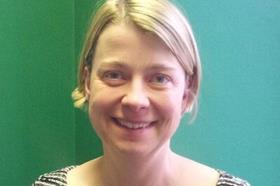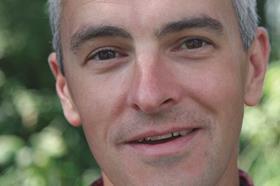‘If you are not at the table, you are likely to be on the menu’
SERVICE DESIGN
By Charlotte Augst, Alex Fox
8 March 2021
Save article
A vision for how integrated care system reform can lead to a more democratic, equitable and human health and care system, by Charlotte Augst and Alex Fox.
Which “place” do you live in? Our hunch is you will know the answer to this question. Charlotte’s answer would be “Lambeth”, Alex’s, “Leeds”. Which integrated care “system” do you live in? Most people wouldn’t have a clue. Is South East London a system? Who knew Leeds, Harrogate and Calderdale are all part of one ICS?

Charlotte Augst

Alex Fox
The ICSs are intended to do more than join up existing health, care and council bureaucracies. They aim to get services working together to align a huge range of services and organisations with what people actually care about. This means doing more than convening different groups of system leaders. It means co-designing the new way of working with two key groups of people: those who make most use of health and care services, and those who are most often excluded from them.
The first rule of accountability is that you know who is in charge. So if ICSs are to deliver what people actually care about, how can we empower people and communities to hold “a system” to account, when they don’t know it exists? Only by being bold.
If communities and their organisations aren’t at the table, they will not be able to ensure that system priorities are aligned with what people actually care about, that behaviour and services that actually enhance people’s lives are incentivised, measured and funded.The white paper highlights the duty to collaborate for providers, NHS boards and partnerships. But the bill needs to be much bolder in mandating the duty to co-design with local people at three different scales: the ICS region; the “place”: a city, county or borough where people exercise their democratic decision-making; and the neighbourhood which people would recognise as “where I live”.
The ICS is where this work needs to be challenged and supported. Where communities, their organisations, and patients or service users can ask questions about quality and equality
The right locus to understand how to convince a particular community on your patch to attend a vaccine centre is probably the neighbourhood. But the primary care network needs to have a relationship with a primary school’s PTA or a ward councillor’s community charity, to find a credible way of bridging into communities at risk of exclusion. The place is the right place to commission, to define need, to plan for it, in partnership with your local, place based, community specific or infrastructure charities.
The ICS is where this work needs to be challenged and supported. Where communities, their organisations, and patients or service users can ask questions about quality, and equality and about the need for a more strategic understanding of how the ecosystem of statutory and voluntary provision, of formal and informal insight, of NHS data sets and community feedback actually is working. And particularly how it is working for those people and communities at the wrong end of the inverse care law.
Fatima Khan-Shah, of the West Yorkshire and Harrogate ICS, describes how a learning disability champions’ forum supported by a commissioned VCSE organisation started in one area and is now spreading across the region with the ICS’s backing. Action which starts with one place or specific community, but that can be built into more strategic change, is the hallmark of the ICS’s reputation for successful change.
As always, true partnership, including with communities, cannot work where the NHS keeps getting pulled into vertical relationships with its national centre. At the heart of effective partnerships is a commitment to make yourself accountable to your partners – horizontally. So we are excited by the opportunity for all the organisations and partners of ICSs, places and neighbourhoods to get planning, designing and delivering with communities. We can’t leave this commitment to the “nice to have” pile of things this Bill won’t address explicitly. Either this Bill will shift the dial towards greater community and place-based ownership of health and care services, or it will risk getting stuck with the misconception that restructuring NHS bodies delivers different outcomes.
As always, true partnership, including with communities, cannot work where the NHS keeps getting pulled into vertical relationships with its national centre
To focus ICSs and partnership boards on community accountability, health and wellbeing, the legislation could place local authorities and the VCSE, rather than the NHS, at the helm. Or ICSs could be placed under clearer duties to demonstrate they have a full picture of local inequalities which is co-owned by NHS, councils and communities, and to demonstrate progress in tackling those inequalities. Either way, we must see a clearer commitment in both legislation and any subsequent guidance.
The health and care system, and local government, are entering yet another difficult year of growing and urgent need, and a limited capacity to ensure the needs are met, equitably and in person centred ways. New legislation inevitably brings distraction and disruption which can only be justified if the outcome is a health and care system fit for the future: one that is democratic, equitable and human.
Save article
A vision for how integrated care system reform can lead to a more democratic, equitable and human health and care system, by Charlotte Augst and Alex Fox.
Which “place” do you live in? Our hunch is you will know the answer to this question. Charlotte’s answer would be “Lambeth”, Alex’s, “Leeds”. Which integrated care “system” do you live in? Most people wouldn’t have a clue. Is South East London a system? Who knew Leeds, Harrogate and Calderdale are all part of one ICS?

Charlotte Augst

Alex Fox
The ICSs are intended to do more than join up existing health, care and council bureaucracies. They aim to get services working together to align a huge range of services and organisations with what people actually care about. This means doing more than convening different groups of system leaders. It means co-designing the new way of working with two key groups of people: those who make most use of health and care services, and those who are most often excluded from them.
The first rule of accountability is that you know who is in charge. So if ICSs are to deliver what people actually care about, how can we empower people and communities to hold “a system” to account, when they don’t know it exists? Only by being bold.
If communities and their organisations aren’t at the table, they will not be able to ensure that system priorities are aligned with what people actually care about, that behaviour and services that actually enhance people’s lives are incentivised, measured and funded.The white paper highlights the duty to collaborate for providers, NHS boards and partnerships. But the bill needs to be much bolder in mandating the duty to co-design with local people at three different scales: the ICS region; the “place”: a city, county or borough where people exercise their democratic decision-making; and the neighbourhood which people would recognise as “where I live”.
The ICS is where this work needs to be challenged and supported. Where communities, their organisations, and patients or service users can ask questions about quality and equality
The right locus to understand how to convince a particular community on your patch to attend a vaccine centre is probably the neighbourhood. But the primary care network needs to have a relationship with a primary school’s PTA or a ward councillor’s community charity, to find a credible way of bridging into communities at risk of exclusion. The place is the right place to commission, to define need, to plan for it, in partnership with your local, place based, community specific or infrastructure charities.
The ICS is where this work needs to be challenged and supported. Where communities, their organisations, and patients or service users can ask questions about quality, and equality and about the need for a more strategic understanding of how the ecosystem of statutory and voluntary provision, of formal and informal insight, of NHS data sets and community feedback actually is working. And particularly how it is working for those people and communities at the wrong end of the inverse care law.
Fatima Khan-Shah, of the West Yorkshire and Harrogate ICS, describes how a learning disability champions’ forum supported by a commissioned VCSE organisation started in one area and is now spreading across the region with the ICS’s backing. Action which starts with one place or specific community, but that can be built into more strategic change, is the hallmark of the ICS’s reputation for successful change.
As always, true partnership, including with communities, cannot work where the NHS keeps getting pulled into vertical relationships with its national centre. At the heart of effective partnerships is a commitment to make yourself accountable to your partners – horizontally. So we are excited by the opportunity for all the organisations and partners of ICSs, places and neighbourhoods to get planning, designing and delivering with communities. We can’t leave this commitment to the “nice to have” pile of things this Bill won’t address explicitly. Either this Bill will shift the dial towards greater community and place-based ownership of health and care services, or it will risk getting stuck with the misconception that restructuring NHS bodies delivers different outcomes.
As always, true partnership, including with communities, cannot work where the NHS keeps getting pulled into vertical relationships with its national centre
To focus ICSs and partnership boards on community accountability, health and wellbeing, the legislation could place local authorities and the VCSE, rather than the NHS, at the helm. Or ICSs could be placed under clearer duties to demonstrate they have a full picture of local inequalities which is co-owned by NHS, councils and communities, and to demonstrate progress in tackling those inequalities. Either way, we must see a clearer commitment in both legislation and any subsequent guidance.
The health and care system, and local government, are entering yet another difficult year of growing and urgent need, and a limited capacity to ensure the needs are met, equitably and in person centred ways. New legislation inevitably brings distraction and disruption which can only be justified if the outcome is a health and care system fit for the future: one that is democratic, equitable and human.
LIKE ME YOU MUST OF FOUND THE TITLE INTRIQUING IN AN EDWARD GOREY SORT OF WAY SEEING NEITHER AUTHOR IS A DR. I ASSUME THEY ARE BOTH COOKS.
SINCE WE ALL KNOW THAT EVERY COOK CAN GOVERN.
No comments:
Post a Comment